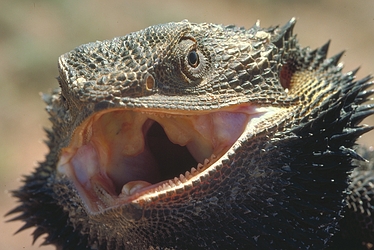The Ultimate Guide to Understanding Bearded Dragon Sounds
Introduction
Bearded dragons are fascinating creatures, and their sounds can tell you a lot about their personality and behavior. If you’re a new bearded dragon owner, you might be wondering what all those different sounds mean. In this guide, we’ll walk you through the various bearded dragon sounds and what they signify.
Why do Bearded Dragons Make Sounds?
Bearded dragons use different sounds to communicate with other dragons and their owners. They can make a range of sounds from hissing and puffing to barking and brumation growls. As their owner, it’s essential to understand what these different sounds mean to provide the best care for your bearded dragon.
Common Bearded Dragon Sounds and Their Meanings
Hissing
Hissing is a common sound that bearded dragons make when they are scared or stressed. If your bearded dragon is hissing, it’s essential to identify the trigger and remove it to keep your pet calm and relaxed. Common triggers include loud noises, sudden movements, and unfamiliar sounds or smells.
Puffing
Bearded dragons puff their beards when they feel threatened or afraid. Puffing is a defense mechanism to make the dragon look more significant and more intimidating to predators. It’s essential to give your bearded dragon plenty of space and avoid handling them when they’re in a defensive posture.
Brumation Growl
Brumation is a term used to describe a period of inactivity in bearded dragons during the winter months. Brumation is like hibernation in other animals, and it’s entirely normal for bearded dragons. During brumation, bearded dragons may make a low growling sound as they enter and leave their dormant state. If your bearded dragon is in brumation, it’s essential to make sure they have plenty of space, warmth, and water to keep them healthy.
Barking
Bearded dragons bark to communicate with other bearded dragons or their owners. Barking can be a sign of excitement, happiness, or territorial behavior. When bearded dragons bark, they make a series of short barks and may puff their beards as well. You may notice your bearded dragon barking when they see food, their owner, or other bearded dragons.
Conclusion
Understanding bearded dragon sounds is an essential part of providing the best care for your pet. By identifying the different sounds and what they signify, you can keep your bearded dragon happy, healthy, and comfortable. Remember, bearded dragons are unique creatures, and their sounds are one way they communicate with the world around them.



